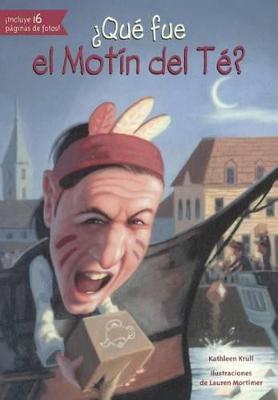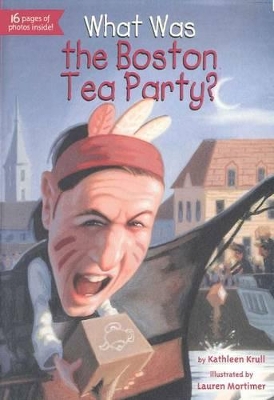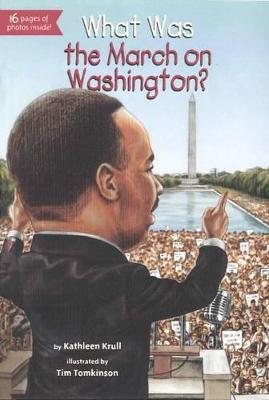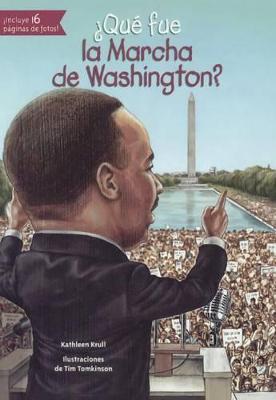What Was...
4 total works
Describe la Boston Tea Party, incluyendo los eventos que llevaron al partido, sus efectos inmediatos en las relaciones estadounidense-británicas, y por qué sigue siendo un evento importante hoy.
Describes the Boston Tea Party, including the events leading up to the party, its immediate effects on American-British relations, and why it is still an important event today.
Describes the Boston Tea Party, including the events leading up to the party, its immediate effects on American-British relations, and why it is still an important event today.
"No Taxation without Representation!" The Boston Tea Party stands as an iconic event of the American Revolution—outraged by the tax on tea, American colonists chose to destroy the tea by dumping it into the water! Learn all about the famed colonialists who fought against the British Monarchy, and read about this act of rebellion from our history! With black-and-white illustrations throughout and sixteen pages of photos, the Boston Tea party is brought to life!
On August 28, 1963, more than 200,000 people gathered in Washington, DC, to demand equal rights for all races. It was there that Martin Luther King Jr. delivered his "I Have a Dream" speech, and it was this peaceful protest that spurred the momentous civil rights laws of the mid-1960s. With black-and-white artwork throughout and sixteen pages of photographs, the March is brought to life!
On August 28, 1963, more than 200,000 people gathered in Washington, D.C., to demand equal rights for all races. It was there that Martin Luther King Jr. delivered his "I Have a Dream" speech, and it was this peaceful protest that spurred the momentous civil rights laws of the mid-1960s.
El 28 de agosto de 1963, más de 200.000 personas se reunieron en Washington, DC, para exigir igualdad de derechos para todas las razas. Fue allí donde Martin Luther King Jr. pronunció su discurso "Tengo un sueño", y fue esta protesta pacífica la que impulsó las trascendentales leyes de derechos civiles de mediados de los años sesenta.
El 28 de agosto de 1963, más de 200.000 personas se reunieron en Washington, DC, para exigir igualdad de derechos para todas las razas. Fue allí donde Martin Luther King Jr. pronunció su discurso "Tengo un sueño", y fue esta protesta pacífica la que impulsó las trascendentales leyes de derechos civiles de mediados de los años sesenta.



